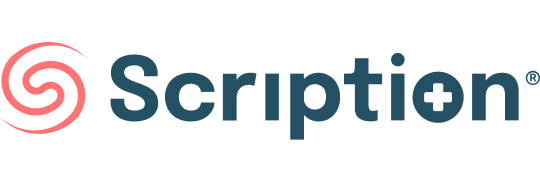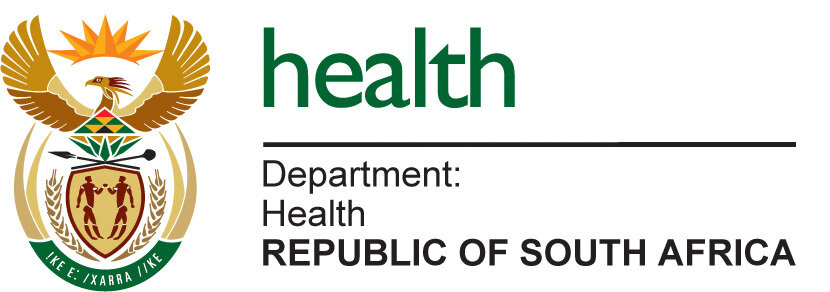Healthcare, Wellness
& Mental Health
Digital Solutions

Building innovative software for industry leaders


Monterail journey to wellness:
personalized, value-based, digital
Awareness and symptom check

Emphasizing early detection and accurate assessment to
ensure appropriate care.
Treatment plan

Creating personalized treatment plans that prioritize patient outcomes and cost-effectiveness.
Ongoing monitoring and support

Continuously monitoring patient progress to adjust treatments, aiming for the best possible health outcomes.

Engaging self-assessment tool
Versatile platform designed for early health detection and intervention.
It blends advanced AI with a user-friendly interface, facilitating accurate symptom assessment and promoting informed healthcare decisions.
Awareness and symptom
Treatment plan
Ongoing monitoring and support


Early symptom identification
Helps users quickly identify potential health issues through an intuitive self-assessment tool.
Accurate health
assessments
Utilizes AI to provide more accurate health assessments based on user-input symptoms.
User-friendly
interface
Designed for ease of use, encouraging more people to engage in early health checks.
Data-driven
insights
Collects data to offer insights and trends, aiding in early detection of widespread health issues.
Integration with
healthcare providers
Facilitates seamless sharing of assessment results with healthcare professionals for further analysis.
Privacy
and security
Ensures user data is handled with the utmost privacy and security, building trust in digital health solutions.
Monterail solution:
Fighting diabetes in African countries
Merck DORA is a product by the Merck Group, a science and technology company that focuses on health improvements with the help of tech solutions and scientific support. So is the example of Merck Dora, a web-based application centered on helping fight diabetes in African countries.



Implementation case study
Case study
Sneak peek into the project

The Merck Group needed to overhaul and improve their existing web-based application. Keeping in mind key aspects for this app, such as access to the Internet and its connection speed, we delivered a lightweight but still visually appealing and secure app for diabetes treatment where users can assess the risk of falling ill.
Originally, Merck DORA was only available in Kenya. After our partnership, the application became available in other eight African countries, and with different language variants.
Our involvement resulted in further collaboration on three projects: Merck Unite, Merck Life Science, and the Fertility Online Risk Assessment.
0,7 MB
APP’S NEW SIZE
60%
OPERA MINI USERS
4
YEARS OF COLLABORATION
ALEXANDER HOFFMAN
Head of Digitalization Africa at Merck
Expertise and insight
Not only did Monterail bring their technical expertise to the table, but they showed their sensitivity to the particular cultural context of this project by asking a lot of meaningful questions early on. Once they had fully and objectively analyzed the problems, they set about producing an original and extremely adequate application solution.

Efficient prescription delivery system
Streamlines the medication acquisition process, connecting healthcare providers and patients directly for swift delivery, thus ensuring timely treatment and enhancing adherence to prescribed care plans.
Awareness and symptom
Treatment plan
Ongoing monitoring and support


Fast prescription
processing
Expedited handling from
prescription to dispatch.
Integrated
pharmacy network
Access to multiple pharmacies for prompt fulfillment.
Real-time
tracking
Patients can monitor their
prescription's journey.
Secure digital
prescriptions
Ensures privacy and accuracy in prescription handling.
Flexible delivery
scheduling
Patients choose convenient
delivery times.
Automated
notifications
Updates at every stage
of the prescription process.
User-friendly
interface
Easy navigation for patients
and providers.
Compliance with healthcare standards
Adheres to regulations for safe service.
Monterail solution:
A web and mobile prescription
delivery solution
A web and mobile application enabling the UK’s fastest
prescription delivery service, built using Ionic.




Implementation case study
Sneak peek into the project

In April 2022 - after 7 months of moving between the very initial application plan to its working version - the MVP with basic functionalities for online pharmacies was launched, and in June 2022, the team at Scription collected feedback from the app’s beta users to make adjustments to the product.
The alpha version of the app was released later in July 2022. Patients can get a prescription and then their medications are delivered in less than 90 minutes. Pharmacies gain access to a new pool of potential customers and a steady stream of online orders.
7
MONTHS FROM
A PLAN TO MVP
419
COMMITS AND COUNTING
8
Monterail TEAM MEMBERS
CHARLES HOWARD
Co-Founder of Scription Technologies
Essential support
The team at Monterail has been essential to us; we couldn't have done it without the breadth of structure that they have because what they provide is effective, including the business manager that runs the whole team working for us.
Case study

We believe AI is a pivotal tool
in enhancing monitoring.
Awareness and symptom
Treatment plan
Ongoing monitoring and support


AI systems should be adept at delivering insightful analyses without overwhelming users with data points.
Focused on the intricate relationship between patients, payers, and providers, AI solutions need to cater to the holistic needs of the healthcare ecosystem.


AI solutions implemented:
Awareness and symptom
Treatment plan
Ongoing monitoring and support


Machine Learning models leveraging sensor data for diagnosis and measurement.
Smartphone-based wound mapping
utilizing LiDAR and computer vision, with AI treatment recommendations.
Breastfeeding analytics solving volume precision challenges (98% accuracy).
AI-powered analysis of ultrasound scans to automate organ measurement.
Smart feminine hygiene pads, using computer vision to recommend optimal products based on personalized blood flow data.
OTC hearing aids with envi-
ronment-based sound quality
optimization.
Hospital cost optimization through
AI generating automated pre-
authorization recommendations,
reducing reimbursement errors.








Empowering hospitals:
cloud and AI innovations
Leverage cutting-edge technology to elevate hospital
Shifting Electronic Health Records to the cloud for increased scalability and dependable access.

EHR Cloud Transformation
Utilizing AI to optimize insurance approval processes, significantly reducing time and operational costs.

AI for Streamlined Approvals

Cloud-powered EHR for rapid
COVID-19 response
We delivered a vital emergency service to the National Department of Health, using our Cloud-based EHR to gather real-time COVID-19 data from all South African hospitals.
We future-proofed the system, migrated the datacenter to Amazon Web Services, and upgraded from Rails 3 to 6, ensuring scalability and reliability through code refactoring and bug fixing.


Implementation case study
AI-Enhanced, Streamlined
Insurance Approval
The project concept for a California hospital integrates machine learning to streamline insurance approvals for medical procedures. By allowing patients to input their insurance information directly, coupled with API integrations for verification, the system significantly reduces administrative efforts. The core feature is a machine learning algorithm that refines form-filling processes using historical data, enhancing accuracy and efficiency with each submission. This technological innovation not only speeds up insurance approvals but also improves patient experience, representing a significant advancement in healthcare administration.

Implementation case study
MENTAL HEALTH SECTOR
Tackling the mental
health epidemic
We need a holistic approach to mental health support
million people, including 58 million children and adolescents, were living with an anxiety disorder.
301
million people, including 23 million children and adolescents, were diagnosed with depression.
280
million people experienced bipolar disorder.
40
million people, including almost 3 million children and adolescents, experienced eating disorders.
14
According to the World Health Organization:

Technology can play
a vital role in this process
Increased
accessibility
Lack of mental health professionals limits the access to services and technology can help dismantle this barrier.
Immediate
help
Mental health apps can serve as first-line support for people dealing with mental health challenges.
Personalized
services
AI-enhanced tools can adjust the type of support to the patient’s needs.
Privacy and
confidentiality
Globally, there’s still stigma around using mental health support services, so digital products may be crucial for breaking it. Data security is also a focus for mental health app developers.

Monterail solution:




Case study
african countries • medtech
Online therapy and wellbeing mobile application
OctoberHealth aims to make mental health more accessible in Africa. They believe that everyone should have access to mental health care and support, which is not the case for many people. The company has taken it as its mission to help provide the resources in this gap and fight the three main reasons for the lack of accessibility: stigma, cost, and unawareness.

mobile development

product design




previously Panda
Sneak peek into the project

As they are a company in its early stages, they required a team of experts that could support the creation of the app on all stages from day one. They knew what they wanted in terms of functionality for the app.
We started our cooperation with discovery workshops during which we mapped out user journeys to help understand how the pieces fit together to bring this product to life.
Our main focus was to provide a smooth experience to all users, especially those with a low internet connection to motivate them not to resign from sessions due to streaming problems. We also ensured that data encryption and safe storage of data, crucial in the mental health industry, are incorporated into the app.
techstack
2
DISCOVERY WORKSHOPS
5
MONTHS TO DEVELOP THE MVP
5
DEVELOPERS + DESIGN TEAM
ALON LITS
Co-Founder of October health
Bringing vision to life
What impressed me the most about the team, is how quickly they grasped what we are trying to achieve, and how they supported us to bring our vision to life. We have a world-class product and we wouldn’t have gotten to this point alone. Monterail was the perfect partner to get us here.
react
Case study
african countries • medtech
python

MEET MONTERAIL
About Monterail
71
nps in 2023
390+
delivered projects
130+
Team members
14+
years on the market

WHO RECOGNIZED US



we are official partner



Let’s stay
in touch!

hello@monterail.com
+966 59 742 5393


(Whatsapp)




